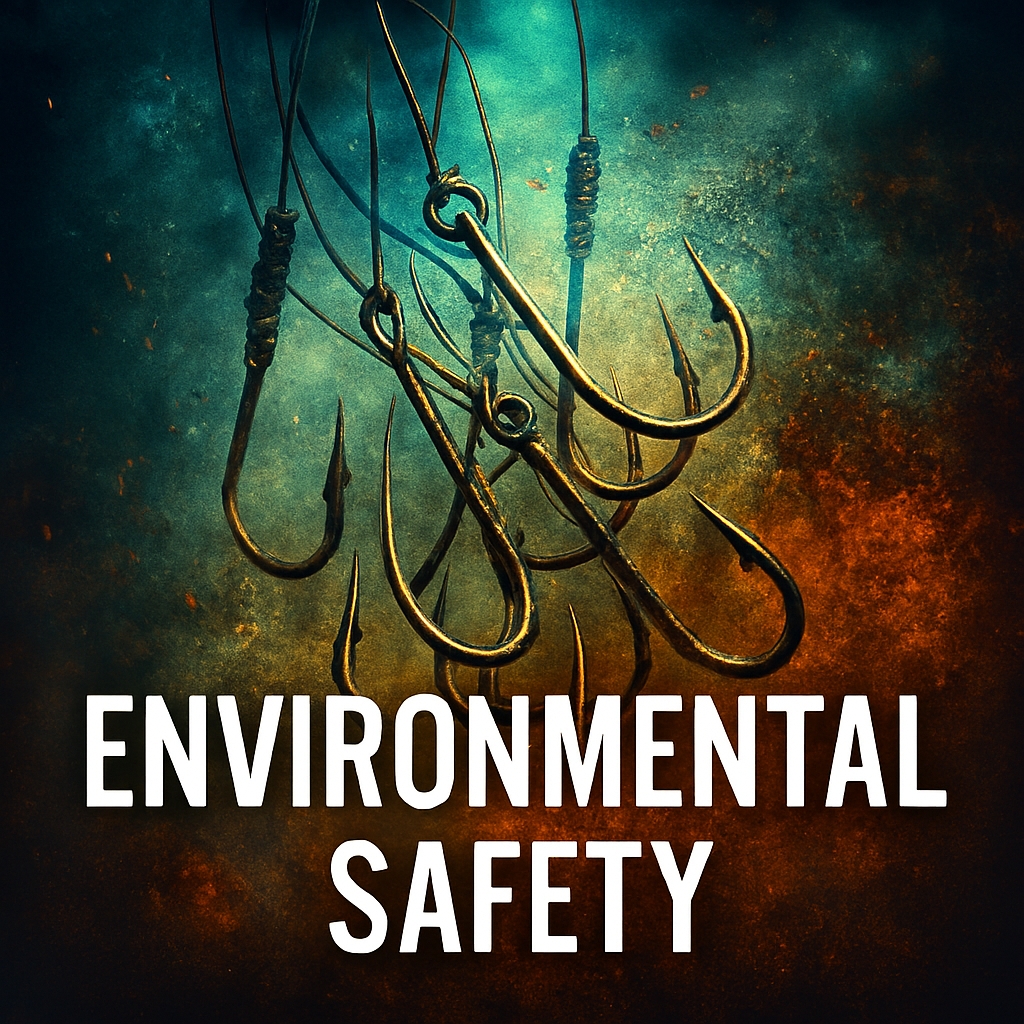The Environment & Political Labels Of The Idea Of The Leftie
In today’s world, caring about the environment has somehow become synonymous with being a “leftie,” or someone who leans towards liberal or progressive political ideologies. This Idea Of The Leftie association, however, is a misunderstanding that needs to be addressed as it is old-fashioned, uneducated, and juvenile.
The Idea Of The “Leftie” Has Too Much Grey Area To Exist Anymore As You Can Be On The Right & Still Care For The Environment – So What Do You Call These People On The Right? Do You Call Them Lefties? This Word Is A Poor Media Excuse To Design Division BUT They Know It Works With The Audience They Broadcast To.
The Origin of the Label Of The Idea Of The Leftie
The idea of the leftie & the association between environmentalism and left-wing politics likely stems from the historical involvement of progressive movements in environmental causes. In the 1960s and 70s, for instance, the counterculture and anti-establishment movements, which were largely left-leaning, embraced environmentalism as part of a broader critique of industrial society.
The Problem With The Label Leftie
Labeling environmental concerns as a “leftie” issue is problematic for several reasons. Firstly, it politicizes an issue that is fundamentally about the survival and well-being of all life on Earth. Climate change, deforestation, pollution – these are not issues that affect only those on the left; they affect everyone, regardless of political affiliation.
Secondly, it creates a false dichotomy that suggests you must choose between caring for the environment and subscribing to conservative values. This is simply not true. Many conservatives care deeply about the environment and believe in stewardship, responsibility, and the importance of preserving nature for future generations.

A Misunderstanding – The Idea Of The Leftie
The Need for a Shift
The perception of environmentalism as a “leftie” issue needs to change. Environmental issues are human issues, and they require the attention and action of everyone, regardless of political leanings.
We need to move away from viewing environmentalism through a political lens and instead see it for what it truly is: a universal concern that affects us all. Only then can we hope to make meaningful progress in addressing the environmental challenges we face.
The “Leftie” Label in Politics and Its Connection to Environmentalism
The term “leftie” is often used in politics to describe individuals or groups that align with left-wing ideologies, which traditionally advocate for social equality, workers’ rights, and progressive reform. Over time, this term has also been associated with environmental advocacy, but it’s important to understand why and how this connection has been made.
The Political Use of the “Leftie” Label
In the political arena, labels like “leftie” are often used to simplify complex ideologies into easily identifiable categories. This can be helpful for voters trying to understand a candidate’s stance on various issues, but it can also lead to oversimplification and stereotyping.
For instance, if a politician is labeled as a “leftie,” people might assume they support all progressive causes, including environmental protection. However, this is not always the case, as political beliefs can vary widely within these broad categories.
Environmentalism and Political Strategy
Environmental issues have become a significant part of political discourse, and politicians often use these issues to appeal to certain voter bases. For left-leaning politicians, advocating for environmental protection can align with their broader goals of social equality and progressive reform.
For example, they might argue that environmental degradation disproportionately affects marginalized communities, thus linking environmentalism with social justice. Or they might propose progressive policies like renewable energy initiatives, which can create jobs and stimulate economic growth while also addressing environmental concerns.
It’s important to note that using environmental issues for political gain is not exclusive to any one political group. Politicians across the spectrum can and do incorporate environmental issues into their platforms, often tailoring their approach to the specific concerns and values of their constituents.
The term “leftie” is often associated with environmentalism, this association is more a product of political strategy and public perception than a reflection of inherent ideological connections. Caring for the environment is a universal concern that transcends political boundaries. It’s a responsibility we all share, regardless of our political leanings.
The “Leftie” Label in Media and Its Connection to Environmentalism
The media plays a significant role in shaping public perception and discourse, and the use of the term “leftie” is no exception. Here’s how and why this term is used in the media and its connection to environmental issues.

A Misunderstanding – The Idea Of The “Leftie”
The Media’s Use of the “Leftie” Label
Media outlets often use labels like “leftie” to categorize and simplify complex political ideologies. This can help audiences quickly understand the general stance of a person or group. However, it can also lead to oversimplification and stereotyping, as these labels may not fully capture the nuances of an individual’s or group’s beliefs.
When it comes to environmental issues, media outlets may label those advocating for environmental protection as “lefties”. This is often because environmentalism has historically been associated with progressive or liberal ideologies, which are typically categorized as “left-wing”.
Environmentalism in Media Narratives
Environmental issues are a hot topic in the media, given their global significance and the urgency of addressing them. Media outlets, regardless of their political leaning, cover environmental stories due to their relevance and impact.
The way these stories are framed can vary. Some media outlets might emphasize the economic opportunities of green technologies, appealing to audiences who value innovation and economic growth. Others might highlight the social justice aspects of environmentalism, appealing to audiences who are concerned about equality and human rights.
Media outlets might use environmental issues to advance certain narratives or agendas. For instance, a media outlet might portray environmental advocates as “lefties” to appeal to or criticize a particular audience. This can reinforce the perception that environmentalism is a “leftie” issue or is the idea of the Leftie is just narrow-minded as even many conservatives also care deeply about the environment.
The term – the idea of the leftie and its association with environmentalism in the media is a complex issue influenced by historical context, audience demographics, and the media’s role in shaping public discourse. It’s important again to remember that caring for the environment is a universal responsibility that transcends political labels.
The “Leftie” Label in Social Norms and Its Connection to Environmentalism
In social contexts, the term – the idea of the Leftie is often used to categorize individuals or groups based on their perceived political ideologies. Here’s how this term is used in relation to environmentalism within societal norms.
The Social Use of the “Leftie” Label
In everyday conversations, labels like “leftie” are often used to simplify complex political ideologies into easily identifiable categories. This can help individuals quickly understand the general stance of a person or group. However, it can also lead to oversimplification and stereotyping, as these labels may not fully capture the nuances of an individual’s or group’s beliefs.
When it comes to environmental issues, individuals who advocate for environmental protection are often labeled as “lefties”. This is largely due to the historical association of environmentalism with progressive or liberal ideologies, which are typically categorized as “left-wing”.
Environmentalism and Social Norms
Environmental issues have become a significant part of societal discourse. As awareness about the urgency of addressing environmental challenges grows, more and more individuals are advocating for environmental protection, regardless of their political leanings.
However, due to the historical association of environmentalism with left-wing politics, individuals who express concern for the environment are often labeled as “lefties” within societal norms. This can lead to the perception that environmentalism is a “leftie” issue, even though many individuals across the political spectrum care deeply about the environment.
The term “leftie” and its association with environmentalism in societal norms is a complex issue influenced by historical context and societal perceptions. It’s important to remember that caring for the environment is a universal responsibility that transcends political labels. It’s a responsibility we all share, regardless of our political leanings or societal labels. Let’s shift the narrative and work together for a sustainable future. After all, the Earth does not belong to a single political party or societal group – it belongs to us all.
Environmentalism Is A Concern Beyond Political Affiliations
The question of whether individuals who identify as politically right-leaning can care about the environment as much as those on the left is an important one. The answer is a resounding yes. Caring for the environment is not, and should not be, exclusive to any political ideology.
Right-Leaning Environmental Advocacy
There are many conservatives who are deeply concerned about the environment and are actively working towards its protection. This is often rooted in values such as personal responsibility, stewardship, and the desire to preserve the natural world for future generations.
For instance, conservative environmentalists often advocate for market-based solutions to environmental problems, such as cap-and-trade systems for carbon emissions or incentivizing green technologies. They may also emphasize the importance of property rights in environmental protection, arguing that individuals who own land or resources will have a vested interest in maintaining their value.

A Misunderstanding – The Idea Of The “Leftie”
The Common Ground
Regardless of political leanings, the fundamental concern for the environment stems from a recognition of our shared responsibility towards our planet. Whether one leans left or right, the fact remains that we all inhabit the same Earth. The air we breathe, the water we drink, and the natural resources we depend on do not adhere to political boundaries.
Environmental issues like climate change, deforestation, and pollution affect us all, and addressing these challenges requires collective action. This is a universal truth that transcends political ideologies.
Conclusion
In our exploration of the term & the idea of the Leftie and its association with environmentalism, we’ve seen that this connection is largely a product of historical context, political strategy, media narratives, and societal norms. However, it’s crucial to remember that environmental concern transcends political labels.
Caring for the environment is not exclusive to any political ideology. Whether one identifies as a “leftie”, a “rightie”, or anywhere in between, the responsibility to protect our planet is a shared one. Environmental issues like climate change, deforestation, and pollution affect us all, and addressing these challenges requires collective action.
The narrative that environmentalism is a “leftie” issue can be limiting and divisive. It’s time to move beyond this narrative and recognize environmentalism for what it truly is: a universal concern that affects us all.
In the end, when it comes to protecting our planet, we’re all on the same team. Let’s work together for a sustainable future because the Earth does not belong to a single political party or societal group – it belongs to us all.

A Misunderstanding – The Idea Of The “Leftie”
Join the Discussion
We hope this exploration of the term & the idea of the Leftie and its association with environmentalism has provided some food for thought. Now, we’d love to hear from you.
Do you agree that environmental concern transcends political labels?
Have you experienced or observed the labeling of environmentalism as a “leftie” issue in your own life?
How do you think we can move beyond this narrative and foster a more inclusive approach to environmentalism?
Remember, every voice matters in this discussion. Whether you identify as a “leftie”, a “rightie”, or anywhere in between, your perspective is valuable. After all, when it comes to protecting our planet, we’re all on the same team.
So, let’s start the conversation. Share your thoughts On the word and the idea of the Leftie in the comments below. Together, we can work towards a more nuanced understanding of environmentalism and a more sustainable future for us all.
#Environment #Sustainability #ClimateChange #Conservation #GreenLiving #EcoFriendly #SaveThePlanet #GlobalWarming #CleanEnergy #Recycle #Reuse #Reduce #GoGreen #EcoConscious #NatureLovers #EarthDayEveryDay #GreenFuture #EcoWarrior #ClimateAction #EndPlasticPollution #ZeroWaste #SustainableLiving #RenewableEnergy #Biodiversity #WaterConservation #AirQuality #SolarPower #WindEnergy #OceanConservation #TreePlanting

















Leave a Reply